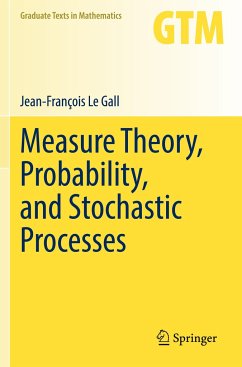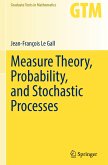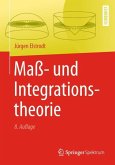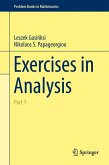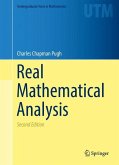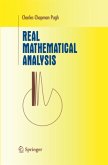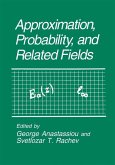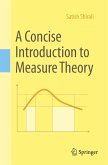This textbook introduces readers to the fundamental notions of modern probability theory. The only prerequisite is a working knowledge in real analysis. Highlighting the connections between martingales and Markov chains on one hand, and Brownian motion and harmonic functions on the other, this book provides an introduction to the rich interplay between probability and other areas of analysis.
Arranged into three parts, the book begins with a rigorous treatment of measure theory, with applications to probability in mind. The second part of the book focuses on the basic concepts of probability theory such as random variables, independence, conditional expectation, and the different types of convergence of random variables. In the third part, in which all chapters can be read independently, the reader will encounter three important classes of stochastic processes: discrete-time martingales, countable state-space Markov chains, and Brownian motion. Each chapter ends with aselectionof illuminating exercises of varying difficulty. Some basic facts from functional analysis, in particular on Hilbert and Banach spaces, are included in the appendix.
Measure Theory, Probability, and Stochastic Processes is an ideal text for readers seeking a thorough understanding of basic probability theory. Students interested in learning more about Brownian motion, and other continuous-time stochastic processes, may continue reading the author's more advanced textbook in the same series (GTM 274).
Arranged into three parts, the book begins with a rigorous treatment of measure theory, with applications to probability in mind. The second part of the book focuses on the basic concepts of probability theory such as random variables, independence, conditional expectation, and the different types of convergence of random variables. In the third part, in which all chapters can be read independently, the reader will encounter three important classes of stochastic processes: discrete-time martingales, countable state-space Markov chains, and Brownian motion. Each chapter ends with aselectionof illuminating exercises of varying difficulty. Some basic facts from functional analysis, in particular on Hilbert and Banach spaces, are included in the appendix.
Measure Theory, Probability, and Stochastic Processes is an ideal text for readers seeking a thorough understanding of basic probability theory. Students interested in learning more about Brownian motion, and other continuous-time stochastic processes, may continue reading the author's more advanced textbook in the same series (GTM 274).
"This book is a good choice for a course introducing both measure theory and probability. It would also be particularly good for self-study by those wishing to see how ideas from measure theory affect our understanding of probability and vice versa. There are exercises at the end of each chapter: some are relatively straightforward, while others expand on topics mentioned briefly in the text." (Thomas Polaski, Mathematical Reviews, August, 2024)
"This book covers probability theory and stochastic processes at a graduate level. ... this book is exceptionally well written in a concise manner and is suitable for individuals with a strong background in undergraduate real analysis and undergraduate probability." (Eunghyun Lee, zbMATH 1526.60001, 2024)
"This book covers probability theory and stochastic processes at a graduate level. ... this book is exceptionally well written in a concise manner and is suitable for individuals with a strong background in undergraduate real analysis and undergraduate probability." (Eunghyun Lee, zbMATH 1526.60001, 2024)

